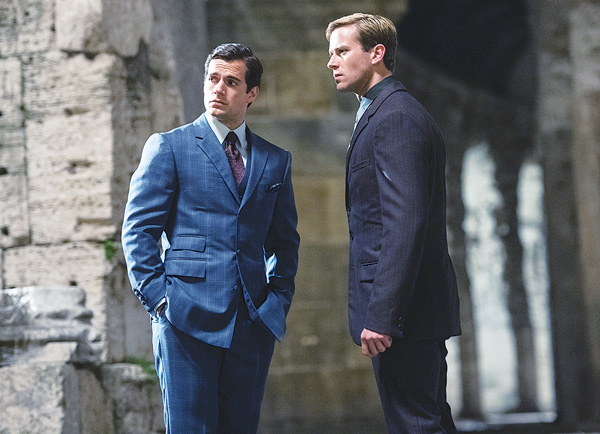By John Mulderig

NEW YORK (CNS) — Another cultural landmark of the baby-boomer generation returns to the foreground with the arrival of the breezy espionage yarn “The Man From U.N.C.L.E.” (Warner Bros.).
The droll humor that punctuates director and co-writer Guy Ritchie’s adaptation of the mid-1960s television series, as well as the James Bond-style glamour that permeates it, will likely please viewers. But they’ll find little of substance.
Still, in collaborating with Lionel Wigram on the script – and in helming the proceedings – Ritchie does keep the violence sufficiently vague to make his film acceptable for a broad adult audience.
Though its action is set at the height of the Cold War, this origin story’s premise recalls the alignment of forces that prevailed during the Second World War. That’s because the Kennedy-era adversaries of East and West have once again agreed to cooperate. And the motive for their temporarily repaired alliance? Same as it ever was: fighting the Nazis.
Hitler’s leftover minions, and their Mussolini-loving comrades, are back, it seems, to causing trouble. This time, they’ve managed to spirit away scientist Dr. Udo Teller (Christian Berkel). The genius behind a revolutionary development in nuclear know-how that, should it fall into the wrong hands, would spell doom alike for D.C. and the Kremlin.
So it’s time to play nice, much to the chagrin of two apparently born enemies: Napoleon Solo of the CIA (Henry Cavill) and Illya Kuryakin of the KGB (Armie Hammer). Yet these forced friends turn out to have more in common, since neither serves his government with a truly willing heart.
Rounding out the team is Dr. Teller’s estranged daughter, Gaby (Alicia Vikander), a skilled auto mechanic whose Solo-aided escape from East Berlin serves as the movie’s opening adventure.
This improvised trio tracks the suspicious activities of Alexander Vinciguerra (Luca Calvani), the shady heir to a fascism-tainted Italian industrial fortune, and his scheming, but oh-so-elegant wife, Victoria (Elizabeth Debicki). As Solo and his colleagues shadow the couple, audiences get a taste of “la dolce vita” in Rome.
The picture’s underlying anti-war, pro-friendship sentiments are congenial enough. Yet reflective moviegoers will note that they rest, to some extent at least, on an implied moral equivalence between the Soviets and their Western foes that’s wholly at variance with the truths of history.
The film contains much violence, including torture, but with little gore, brief gruesome images, off-screen casual encounters, glimpses of partial nudity, some sexual banter and a couple of crude terms.
The Catholic News Service classification is A-III – adults. The Motion Picture Association of America rating is PG-13 – parents strongly cautioned. Some material may be inappropriate for children under 13.
Mulderig is on the staff of Catholic News Service.
